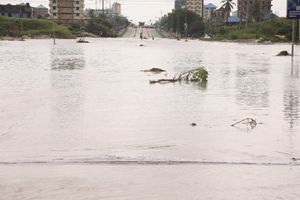5 top risks ahead for EA businesses

What you need to know:
Unpredictable policymaking in Tanzania, high debt levels in Kenya and speculation over President Yoweri Museveni’s succession plans in Uganda are among the key risks for businesses operating in the region in the year ahead, says global risk consultancy
Dar es Salaam. Organisations operating in East Africa are facing several challenges that might limit the region’s economic growth potential, a specialist global risk consultancy has said.
Control Risks (www.ControlRisks.com) that helps to create secure, compliant and resilient organisations in an age of ever-changing risks, says despite the return of stability in some countries across East Africa, the region still faces several challenges that will persist in 2018 for organisations.
“High debt levels in Kenya and unpredictable policymaking in Tanzania are among the key risks for businesses operating in the region in the year ahead,” Control Risks says in its annual political and security risk forecast dubbed RiskMap.
In Tanzania, Control Risk predicts that the government will continue to use nationalistic legislation in the extractives industry as a way of increasing its revenue and addressing fiscal restraints, presenting a range of regulatory and political risks for investors in the short-to-medium term.
According to Control Risk, there will be security and operational risks, resulting from political pressures in Ethiopia and Uganda.
“In Uganda, speculation over President Yoweri Museveni’s succession plans is likely to persist, despite the likely passage of a constitutional amendment (which has already been passed) removing the age limit for presidential candidates,” it says.
In Kenya, a pending repayment of the first portion of a Eurobond worth $774.8 million in 2018 should be a trigger for the government to refocus attention on controlling public borrowing and spending before debt becomes unmanageable.
Kenya has a strong appetite for external borrowing and has remained politically intransigent about its downsides. While Kenya remains highly unlikely to default on its debt, growing interest payments and international banks’ shrinking appetite to provide further loans will result in lower public spending, which has been a key driver for economic growth in recent years.
Regional political cooperation increases vulnerabilities for investors.
The infrastructure boom in East Africa is set to continue in 2018. However, cross-border projects will depend on closer and more effective political cooperation between regional governments, raising political risk vulnerabilities.
Increasing focus on local content will present a range of reputational risks for investors around third-party management, and land and community issues will require early and committed engagement from investors to avoid any major operational impact.
Tensions between Kenya’s national and county governments may generate new political risks
The country’s return to political stability in 2018 will begin to unlock investment demand.
However, the government will need to consolidate stability and focus on building effective working relationships with county governments to keep political risks at bay.
It will also need to focus on stimulating the private sector by reassessing the interest rate cap, encouraging more private sector involvement in infrastructure projects and continuing to reduce bureaucratic hurdles.




